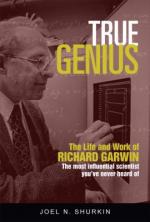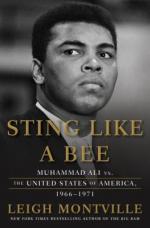December 1, 2017 | madame librarian
Five reasons why choosing to read a biography will be a choice that will benefit you in many ways.
1. They allow you to stand on the shoulders of giants.
2. They remind you that history repeats itself.
3. They promote self discovery.
4. They allow you to see the world in new ways.
5. They give you mentors at a distance.
Source: Leadership & Learning with Kevin Eikenberry|05.17.2010
"Pulitzer Prize-winner and biographer of Alexander Hamilton, George Washington, and John D. Rockefeller, Ron Chernow returns with a sweeping and dramatic portrait of one of our most complicated generals and presidents, Ulysses S. Grant Ulysses S. Grant's life has typically been misunderstood. All too often he is caricatured as a chronic loser and inept businessman, fond of drinking to excess; or as the triumphant but brutal Union general of the Civil War; or as a credulous and hapless president whose tenure came to symbolize the worst excesses of the Gilded Age. These stereotypes don't come close to capturing adequately his spirit and the sheer magnitude of his monumental accomplishments. A biographer at the height of his powers, Chernow has produced a portrait of Grant that is a masterpiece, the first to provide a complete understanding of the general and president whose fortunes rose and fell with dizzying speed and frequency"--.
"With writing both brilliant and compassionate, this handsome volume features stunning examples of the artists' work, cementing their stature among the best artists of their day. Identity Unknown speaks to all women about their neglected place in history and the challenges they face to be taken as seriously as men no matter what their chosen field"--.
"The first biography of Richard Garwin, a physicist whose work has had wide-ranging impacts on modern life from well-known technical innovations to progress in nuclear disarmament"--.
For over twenty years, award-winning short story writer and novelist Peter Markus has made his living teaching creative writing in the Detroit Public Schools. As a teaching artist with Detroit's longest enduring literary non-profit -- InsideOut Literary Arts Project -- Markus has inspired thousands of students to become believers in the power of words, armed with nothing but an ordinary pencil -- the same beat-up, unsharpened pencil Markus has carried with him, story has it, since he was in the third grade. With nods to Pablo Neruda, Mark Strand, T.S. Eliot, and the vital honesty of his own poetic experience, he invites children to explore the dreamscapes of their imaginary worlds, encouraging even the most resistant students to see what magic and wonder awaits them.
"An insightful portrait of Muhammed Ali from the New York Times bestselling author of At the Altar of Speed and The Big Bam. It centers on the cultural and political implications of Ali's refusal of service in the military--and the key moments in a life that was as high profile and transformative as any in the twentieth century. With the death of Muhammad Ali in June, 2016, the media and America in general have remembered a hero, a heavyweight champion, an Olympic gold medalist, an icon, and a man who represents the sheer greatness of America. New York Times bestselling author Leigh Montville goes deeper, with a fascinating chronicle of a story that has been largely untold. Muhammad Ali, in the late 1960s, was young, successful, brash, and hugely admired--but with some reservations. He was bombastic and cocky in a way that captured the imagination of America, but also drew its detractors. He was a bold young African American in an era when few people were as outspoken. He renounced his name--Cassius Clay--as being his 'slave name,' and joined the Nation of Islam, renaming himself Muhammad Ali. And finally in 1966, after being drafted, he refused to join the military for religious and conscientious reasons, triggering a fight that was larger than any of his bouts in the ring. What followed was a period of legal battles, of cultural obsession, and in some ways of being the very embodiment of the civil rights movement located in the heart of one man. Muhammad Ali was the tip of the arrow, and Leigh Montville brilliantly assembles all the boxing, the charisma, the cultural and political shifting tides, and ultimately the enormous waft of entertainment that always surrounded Ali. Muhammed Ali vs. the United States of America is an important and incredibly engaging book"--.





